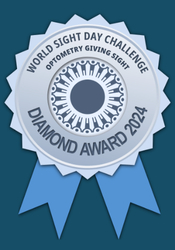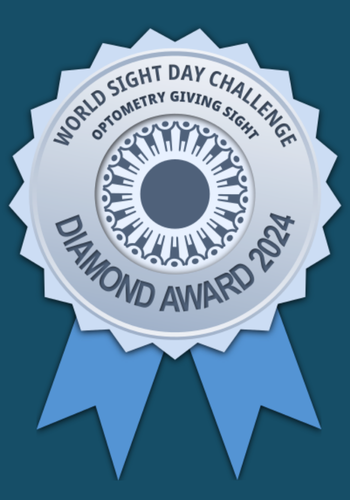Laser Eye Surgery – Know What To Expect

Most people have more than a bit of anxiety when considering the option of going in for an elective eye surgery. Knowing a bit more about what happens may ease the fear factor considerably!
- The first step is to consult one of our optometrists to find out if you are a candidate for refractive surgery. If it’s been over a year, book an appointment and be sure to mention to the doctor that you are interested in laser corrective surgery. He or she will be able to give you a good preliminary discussion based on your exam results to determine if it’s possible to proceed to the next step.
- If you wear contact lenses, you will need to stop wearing them for a while leading up to your consult with the surgeon. The exact length of time you need to be out of them ranges from a couple weeks to a month or more depending on the type of contact lens you wear.
- We recommend a referral to a reputable laser center. Our doctors do a lot of work with a few Calgary-based clinics, and can refer you to one that meets your needs. We will also provide the surgeon with a detailed report of your eye exam history with us which contains useful data including your prescription history, relevant health and ocular history, and any concerns that may affect your surgical results.
- Consult with the surgeon. This can typically be arranged within a few weeks, and if you are deemed to be a good candidate a date will be arranged for the surgery. A specific procedure may be recommended or you may be given the choice between one or more types of procedures (see this month’s video blog about the difference between the two most popular refractive surgery procedures). You will likely have your pupils dilated during this exam and a number of tests will be run to check measurements, and also to determine if there are any risk factors present that could affect your outcome after surgery.
- A day or two in advance of your surgery you will be asked to stop using lotions and makeup, and you may be instructed to cleanse your eyelashes. This is to ensure your eyes are as clean and free of bacteria as possible, to reduce the possibility of infection.
- The day of the surgery – bring someone to drive you home afterwards. The surgery itself is done under a local anesthetic which is administered with eye drops (ie. No needles and you are not put to sleep). There is no pain. Your eyes will need to be immobilized to ensure accurate results – this feels a little strange but does not hurt. The laser reshapes your cornea by emitting short pulses that make a “snapping” sound. One eye is done at a time – both eyes are usually done during the same visit.
- You will be released the same day with a prescription for medications and a list of “do’s and don’ts”. Depending on the type of procedure your recovery time will range from a couple of days to a week or more. During this time you can expect your vision to be blurry and your level of comfort to range from mild irritation to more significant scratchiness and light sensitivity. The degree of blur and discomfort depends on the type of procedure you had and other factors such as whether or not you have “dry eyes” and how high your prescription was before the surgery.
- You will need to see the surgeon the day after for a follow up. After that you will return to us for 4 follow up visits, scheduled as follows: 1 week, 1 month, 3 months and 6 months. We will examine your eyes to ensure they are healing as expected, and communicate our findings to the surgeon after each visit.
Laser corrective surgery is not for everyone. Those that are good candidates typically do very well and enjoy much lower dependence on glasses or contacts for many years. Book an appointment if you are interested in learning more about your own specific situation and if you would benefit from laser corrective surgery.












